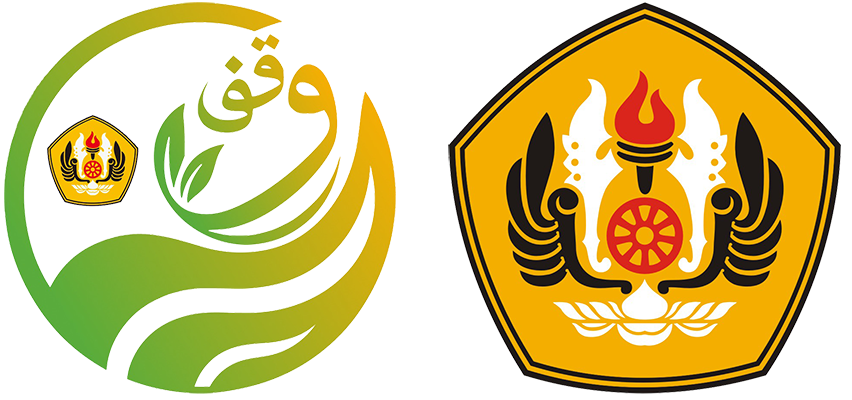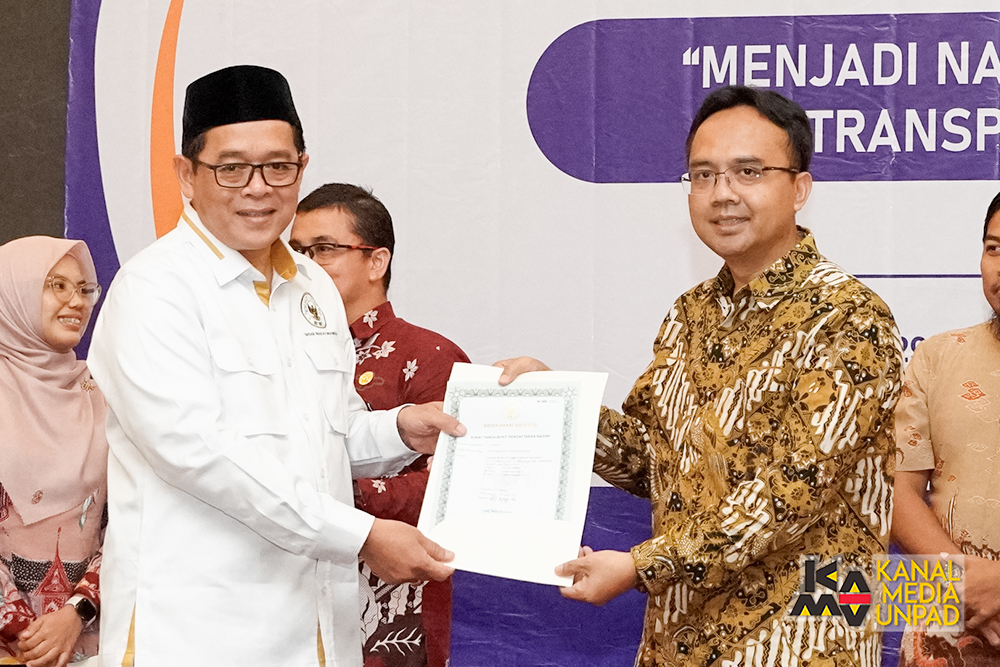Universitas Padjadjaran has officially received a certificate of license to act as a nazhir (waqf manager) for cash waqf through the establishment of the Unpad Waqf Institution, issued by the Indonesian Waqf Board (BWI). The certificate is awarded during the event “Training and Strengthening of Nazhir Competence and Awarding of Cash Waqf Nazhir Certificates” that is being held at Hotel Horison Ultimate, Bekasi, on Tuesday, April 29th, 2025. This milestone marks a strategic advancement for Unpad in professionally managing waqf assets to support education, research, and community service initiatives.
“This presents an opportunity for Unpad to enhance its role and contributions in the waqf sector. Waqf benefits not only human welfare but also environmental sustainability and the advancement of projects that serve the public good,” said Dr. H. Tatang Astarudin, S.Ag., S.H., Vice Chairman I of BWI and a Unpad alumni.
The establishment of the Unpad Waqf Institution is initiated in recognition of the need for sustainable university funding amidst budgetary constraints. As a higher education institution that nurtures thousands of future national leaders, Unpad requires long-term financial support to develop comprehensive, inclusive, and modern facilities. Waqf is viewed as an alternative funding solution that supports infrastructure development while directly benefiting the Unpad academic community—including students, faculty, and society at large—in the years to come.
“Unpad is committed to making waqf an alternative funding channel for infrastructure and facility development, which in turn enhances the university’s performance in its three pillars, namely education, research, and community service (tridharma). We also aim to optimize the impact of waqf for its beneficiaries (mauquf alaih),” explained Prof. Dr. Maman Setiawan, S.E., M.T., Chairman of the Unpad Waqf Institution and also Unpad’s Vice Rector for Planning, Digital Transformation, Finance, and Business Management.
The legal recognition as a licensed nazhir of cash waqf is a vital step in strengthening Unpad’s contribution to sustainable development. With this certification, Unpad is now legally authorized to manage waqf funds—including their collection, administration, and distribution—in a trustworthy and transparent manner.
“Waqf is a form of charitable investment with enduring rewards. Therefore, the Unpad Waqf Institution is expected to manage it with professionalism, accountability, and broad societal impact,” added Prof. Maman. With the establishment of the Unpad Waqf Institution, Prof. Maman hopes the public—especially the academic community and alumni—will actively participate in developing the agency’s various waqf programs. This collective participation is expected to strengthen the role of waqf in supporting education, research, and community engagement on a sustainable basis. Dr. Tatang also called on all members of the public, particularly the Unpad academic community and alumni, to unite in supporting the Unpad Waqf Institution. With this shared commitment, Unpad is expected to play a pivotal role in advancing public welfare through three key objectives, namely enhancing the quality of education via adequate infrastructure, ensuring accessible healthcare, and increasing overall community well-being.
Dengan kekuatan tersebut, Unpad diharapkan dapat berperan nyata dalam pengembangan kesejahteraan masyarakat yang diwujudkan melalui tiga agenda utama, yaitu peningkatan kualitas tridharma melalui sarana/prasarana yang memadai, kesehatan yang terlindungi, dan kesejahteraan yang semakin meningkat.
“This is a mission we must pursue and nurture together. I encourage the entire Unpad family, as well as the broader public, to entrust their waqf contributions to the Unpad Waqf Institution. God willing, Unpad will be able to fully harness the potential of these endowments for the greater good,” urged Tatang.

